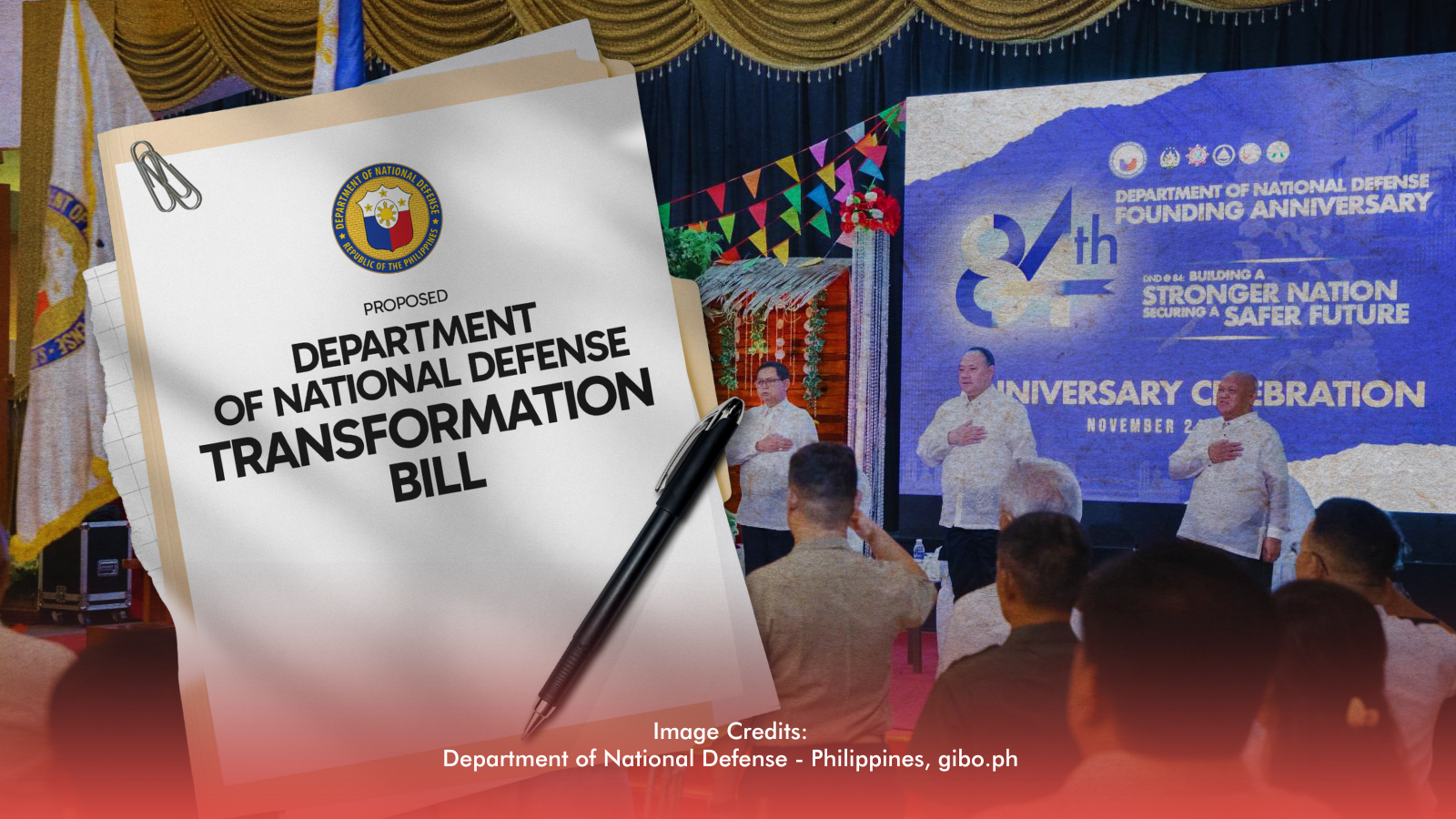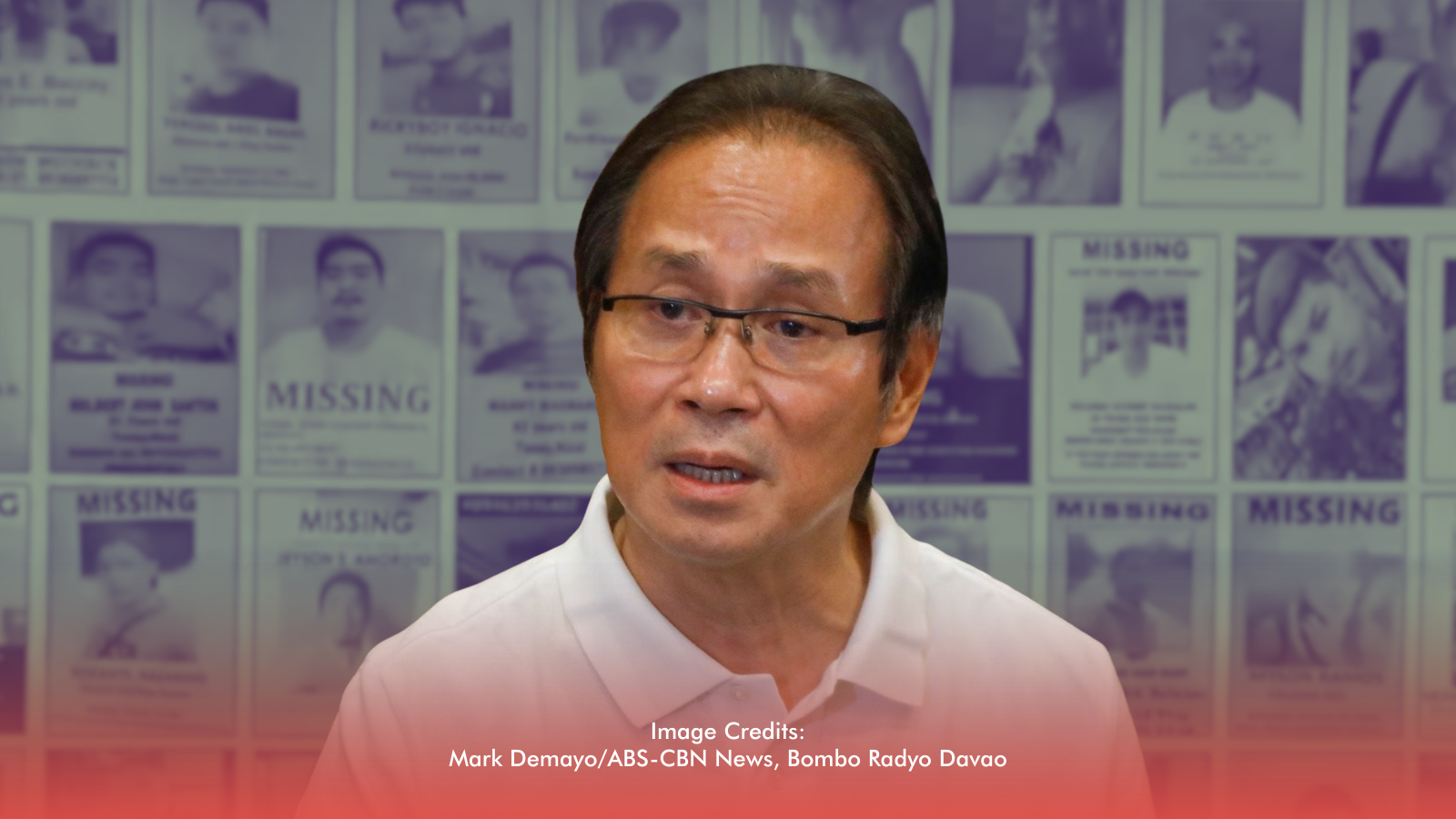Nearly a century has passed since the Department of National Defense (DND) was established through Commonwealth Act No. 1 in 1935. At that time, the Philippines faced a world on the brink of war, a time when national defense meant armies, arsenals, and territorial protection. But the world has changed. Today, our threats are no longer just traditional, they are cyber, environmental, economic, and even informational. And yet, the DND’s structure remains rooted in a post-World War II framework.
This is why the DND Transformation Bill isn’t just another bureaucratic reform. It’s a long-overdue rethinking of how the country protects itself, a modernization of the very institution responsible for our defense and resilience.
RELATED: [DND's Proposed Budget for 2025: Building A Safer Future]
A Department Built for a Different Time
The DND today oversees not only the Armed Forces of the Philippines but also four civilian bureaus: the Government Arsenal, the Office of Civil Defense, the National Defense College of the Philippines, and the Philippine Veterans Affairs Office. It carries the enormous task of managing both defense operations and civilian preparedness—all while facing modern threats that its current structure was never designed to handle.
As it stands, the DND is overburdened and under-equipped for the demands of the 21st century. It struggles with a limited workforce, rigid recruitment systems, and few pathways for specialization—all of which make it difficult to attract and retain the kind of experts required in modern defense, from cybersecurity analysts to climate risk strategists.
Building an Agile Defense Ecosystem
The DND Transformation Bill seeks to fix this. It proposes a new organizational design that allows the Defense department to become agile, capable of assessing evolving security environments, identifying capability gaps, and crafting forward-looking defense policies and strategies. It also seeks to modernize personnel systems so that the DND can hire and retain specialists, ensuring continuity in critical programs and faster decision-making across all defense functions.
As Defense Secretary Gilberto Teodoro Jr. put it, “We are pushing for the DND Transformation Bill to modernize how we operate. Many of our critical positions remain unfilled, which limits our ability to fully manage the defense ecosystem. This bill will allow us to attract and retain civilian specialists with the skills we need, ensure continuity in key programs, and make the department more agile. It’s a necessary step to strengthen our capacity to address both current and future security challenges,” he emphasized.
A Strategic Imperative, Not Just Reform
Passing the DND Transformation Bill isn’t just about internal efficiency; it’s about survival in a volatile global landscape. In an era where cyberattacks can cripple economies, where climate disasters demand rapid civilian-military coordination, and where regional tensions are on the rise, national defense must be as dynamic as the challenges it faces.
The Philippines cannot afford to defend tomorrow’s nation with yesterday’s systems. The DND must evolve into an institution that not only reacts but anticipates, one that integrates technology, data, and talent to protect the Filipino people in all dimensions of security.
The DND Transformation Bill is not merely about organizational reform. It is about building a defense establishment that thinks ahead, adapts fast, and acts decisively. If we are to secure the country’s future, this transformation cannot wait another decade.








